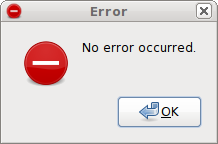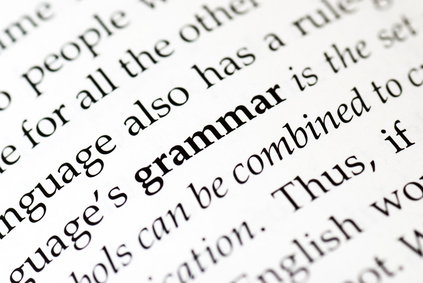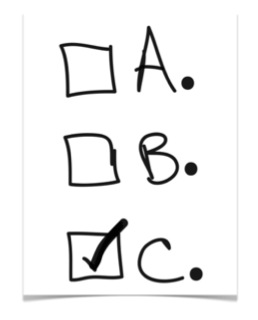 If you need to raise your SAT Writing section score in a hurry, check out the SAT Grammar Crammer – it’s designed to target the most common SAT Writing mistakes and quickly boost your score!
If you need to raise your SAT Writing section score in a hurry, check out the SAT Grammar Crammer – it’s designed to target the most common SAT Writing mistakes and quickly boost your score!
It’s been a few days since I provided some real hard-core free SAT prep info, so it’s time to talk about a serious and common SAT grammar mistake.
We’re going to spend several days on this topic because I like it so much (for part 2 click here and for additional articles on misplaced modifiers click here, here and here), and because it can take some time and practice to get really good at it. Ok, here we go!
Misplaced Modifiers on the SAT:
These are my second favorite grammar error on the SAT (I’m saving my number-one favorite for another time). Three reasons that I love Misplaced Modifiers on the SAT?
1) Misplaced Modifiers amuse me.
A good misplaced modifier means the sentence is grammatically communicating something totally different from what is intended, usually to surreal and comical effect.
2) Misplaced Modifiers are incredibly obvious
Once you get good at spotting misplaced modifiers, there’s rarely going to be any debate in your mind that you’ve found the sentence error.
3) Misplaced Modifiers occur commonly in everyday speech.
When you learn how they work, it’s like being part of a secret grammar society hidden under the surface of daily interactions. In fact, I hid a misplaced modifier at the end of my most recent post, A little eSATPrepTips.com miracle.
An example of a Misplaced Modifier error:
Most people probably wouldn’t catch it – here’s what it said: “If you’re out there – leave a comment! I’ll love you forever, like Meryl!” (Meryl was the first real live person to leave a comment for me!)
So here’s my question about the misplaced modifier hidden above: Who will love you forever for commenting – Meryl or I?
Get Exclusive SAT Prep Tips!
I want to send you more tips to help your SAT score, but I need your email address to stay in touch. Enter your email below so I can send you my reports on the SAT and other subscriber-only bonuses.
Well, in this case, I’m obviously referring to myself in context. If you leave a comment, I will love you forever. Whether or not Meryl loves you forever is not what this sentence is about. I’m writing my blog, and I can’t speak for her, only for myself. It’s pretty obvious what I mean.
However, if we had no such context, then as written, there’s a huge amount of ambiguity or potential confusion about who-loves-who. This sentence could have been intended to mean “I’ll love you forever, like Meryl does.”
Do you see what I mean? If you don’t quite see it, back up 6 mini-paragraphs and take a second look. If it’s still eluding you, just stick with the articles this week and it will become clear!
Misplaced Modifiers are like a grammar illusion:
Misplaced modifiers are like the grammar equivalent of an optical illusion – look at it one way, it means one thing, but switch your viewpoint and it says something else. Either it means “I’ll love you forever, like I love Meryl forever!” or it means “I’ll love you forever, just like Meryl loves you forever!”
These are two totally different meanings. We need context to understand which meaning is the intended one. In everyday speech, this is never a problem. But for the SAT, this amount of ambiguity is a big, big mistake.
Think of the SAT as your neurotic English teacher, calling you out on EVERY SINGLE LITTLE MISTAKE, no matter how useless the grammar rule seems in real life. Any time there’s ambiguity or possible confusion due to grammar, the SAT will be very unhappy.
If any potential confusion can result from the way a sentence is written, that’s a good sign you’ve found an error.
How to fix the example question:
Here’s how you could fix my original grammar mistake on the SAT: Instead of “I’ll love you forever, like Meryl!” you could pick “I’ll love you, like Meryl, forever!”
An interesting case of “sounds worse than before but is more grammatically correct.” In the new version, “like Meryl,” (a modifying/descriptive phrase) is right next door to “you,” the noun that is being clarified or modified.
If I wanted the other meaning, I could say “I, like Meryl, will love you forever!” Then it would be grammatically clear that “like Meryl” is modifying the noun “I,” not “you.”
Summing Up:
“I’ll love you forever, like Meryl!” = misplaced modifier. It’s unclear what “like Meryl” is describing because it’s not next-door to a specific noun. We don’t know with perfect accuracy who-loves-who.
“I’ll love you, like Meryl, forever!” = No problem. The modifier “like Meryl” is placed next to “you,” the noun it is modifying. The meaning is: “I will love you forever, just like I will love Meryl forever!”
“I, like Meryl, will love you forever!” = No problem. The modifier is placed next to “I,” the noun it is modifying. The meaning is changed to “Both Meryl and I will love you forever!”
This should open your eyes to the importance of modifier placement on the grammar section of the SAT. Don’t worry, I’ll be writing more posts about this in the upcoming days. This is just intended to get you started on misplaced modifiers (for part 2 click here and for more articles see the list below!).
See you soon!
For more hardcore SAT grammar rules and practice, purchase a copy of my SAT Grammar Crammer from our online bookstore!
Further Reading:
Misplaced Modifiers, Part 2
SAT Writing Grammar Rules: Misplaced Modifiers
SAT Grammar: Misplaced Modifier Examples
Hilarious SAT Writing Errors: Dangling and Misplaced Modifiers
Additional Resources:
SAT Grammar Crammer: Top 12 SAT Writing Grammar Rules
Did you learn anything useful from this article? If so, be sure to join my SAT emailing list before you go today. I’ll send you exclusive subscriber-only content like the Urgent Report on Critical Reading and other SAT-related bonuses!


















[…] SAT Grammar: Misplaced Modifiers, Part 1 […]
[…] can read Part One and Part Two by following those links. The earlier posts help define and clarify what exactly a […]